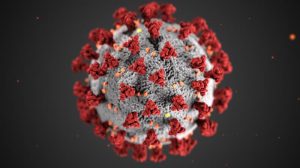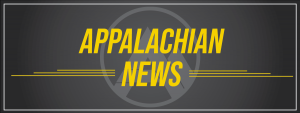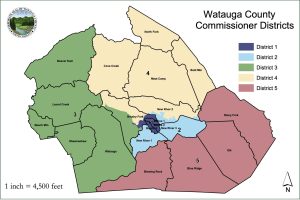AppHealthCare engaged with local and state partners to monitor coronavirus
March 12, 2020
AppHealthCare is working with local and state partners to monitor and respond to the coronavirus pandemic. In a press release, AppHealthCare said it would notify the public if there was a positive case of coronavirus in Watauga County.
“We encourage people to share credible and reliable information about COVID-19 (novel coronavirus) and know that if a confirmed case is determined, we will be working to make the public aware. We are continuing to encourage people to practice prevention measures like frequent hand washing, staying home when you’re sick, and keeping distance from others who are sick,” AppHealthCare Health Director Jennifer Greene said in a press release.
AppHealthCare encourages the public to contact their local healthcare provider if they are ill and believe they are in need of treatment.
“Now is not the time to visit the hospital emergency room unless there is a true medical emergency. We need to preserve our local hospital capacity to respond throughout this event to meet the various healthcare needs that require urgent action in our community,” Greene said.
AppHealthCare is available and on-call 24/7 to respond to public health emergencies. AppHealthCare’s number is (828) 264-4995.
“We are continuing to encourage people to practice prevention measures like frequent hand washing, staying home when you’re sick, and keeping distance from others who are sick,” Director of Communications and Compliance Melissa Bracey told The Appalachian.
Bracey said testing for coronavirus can only be done in consultation with a healthcare provider to determine whether testing is warranted based on a patient’s symptoms.
“Some tests are provided through the local AppHealthCare office in Watauga County, who are also providing optional consultation to local healthcare providers prior to determining whether to test,” Bracey said. “Currently, the test is swab of the patient’s throat and nose. That test is then sent to either the NC State Lab for Public Health or a commercial lab.”
More information on testing can be found at the North Carolina Department of Health and Human Services website here.
AppHealthCare is also following recommendations issued by Governor Roy Cooper March 12 that are effective for the next 30 days before they are re-assessed.
The recommendations include:
1. SYMPTOMATIC PERSONS
If you need medical care and have been diagnosed with COVID-19 or suspect you might have COVID-19, call ahead and tell your health care provider you have or may have COVID-19. This will allow them to take steps to keep other people from getting exposed. North Carolina Department of Health and Human Services recommends that persons experiencing fever and cough should stay at home and not go out until their symptoms have completely resolved.
2. HIGH RISK PERSONS WITHOUT SYMPTOMS
NCDHHS recommends that people at high risk of severe illness from COVID-19 should stay at home to the extent possible to decrease the chance of infection.
People at high risk include people:
- Over 65 years of age, or
- with underlying health conditions including heart disease, lung disease, or diabetes, or
- with weakened immune systems.
3. CONGREGATE LIVING FACILITIES
NCDHHS recommends that all facilities that serve as residential establishments for high-risk persons described above should restrict visitors. Exceptions should include end of life care or other emergent situations determined by the facility to necessitate a visit. If visitation is allowed, the visitor should be screened and restricted if they have a respiratory illness or potential exposure to COVID-19. Facilities are encouraged to implement social distancing measures and perform temperature and respiratory symptom screening of residents and staff. These establishments include settings such as nursing homes, independent and assisted living facilities, correction facilities, and facilities that care for medically vulnerable children.
4. SCHOOLS
We do not recommend pre-emptive school closure at this time but do recommend that schools and childcare centers cancel or reduce large events and gatherings (e.g., assemblies) and field trips, limit inter-school interactions, and consider distance or e-learning in some settings. Students at high risk should implement individual plans for distance or e-learning. School dismissals may be necessary when staff or student absenteeism impacts the ability to remain open. Short-term closures may also be necessary to facilitate public health investigation and/or cleaning if a case is diagnosed in a student or staff member.
5. WORKPLACE
NCDHHS recommends that employers and employees use teleworking technologies to the greatest extent possible, stagger work schedules, and consider canceling non-essential travel. Workplaces should hold larger meetings virtually, to the extent possible. Additionally, employers should arrange the workspace to optimize distance between employees, ideally at least six feet apart. Employers should urge high risk employees to stay home and urge employees to stay home when they are sick and maximize flexibility in sick leave benefits.
6. MASS GATHERINGS, COMMUNITY, AND SOCIAL EVENTS
NCDHHS recommends that organizers of events that draw more than 100 people should cancel, postpone, modify these events or offer online streaming services. These events include large gatherings where people are in close contact (less than 6 feet), for example concerts, conferences, sporting events, faith-based events and other large gatherings.
7. MASS TRANSIT
Mass transit operators should maximize opportunities for cleaning and disinfection of frequently touched surfaces. People should avoid using use mass transit (e.g. buses, trains) while sick.
For more information on COVID-19 (novel coronavirus), please visit the Centers for Disease Control & Prevention (CDC) website at cdc.gov/coronavirus. North Carolina resources can be found on the Division of Public Health website at ncdhhs.gov/coronavirus.
A COVID-19 toll free helpline has been set up to answer general, non-emergent questions at 1-866-462-3821. To submit questions online, go to www.ncpoisoncontrol.org and select “chat.”













